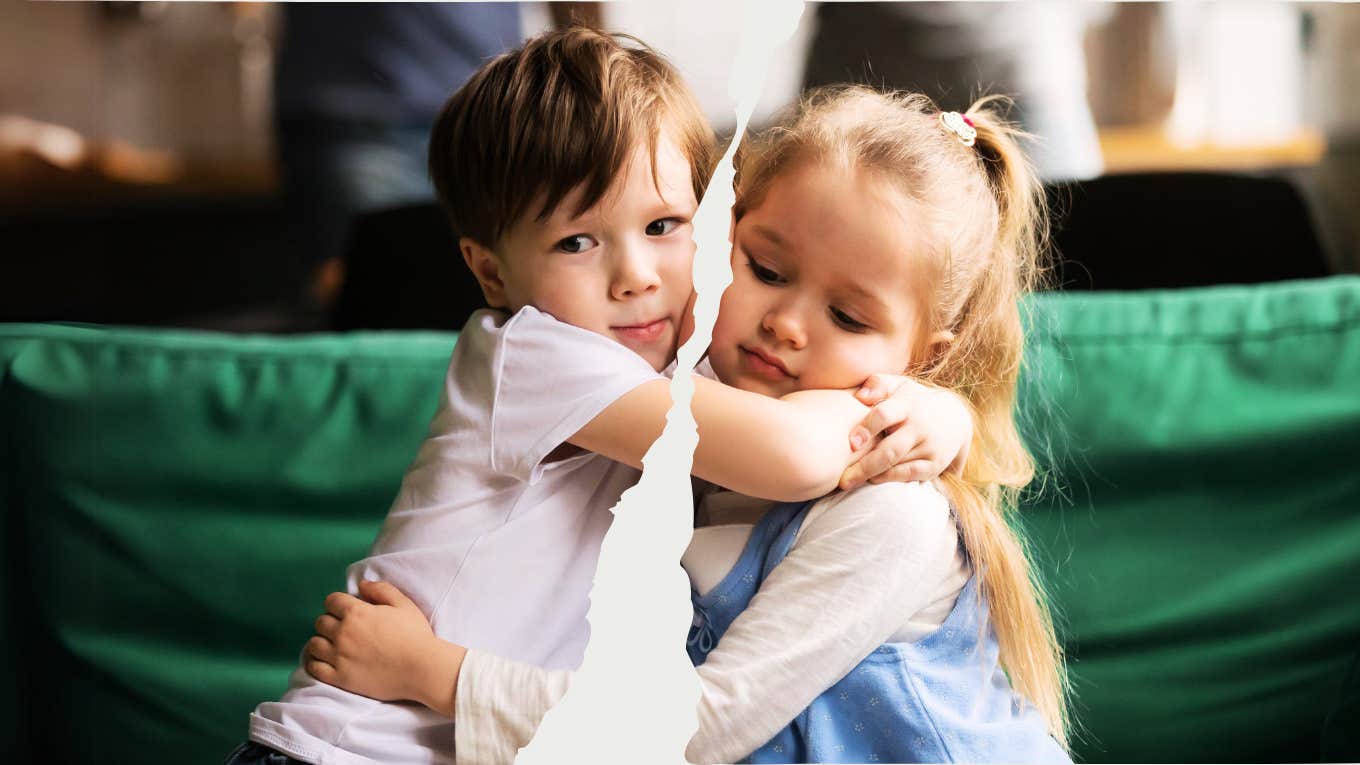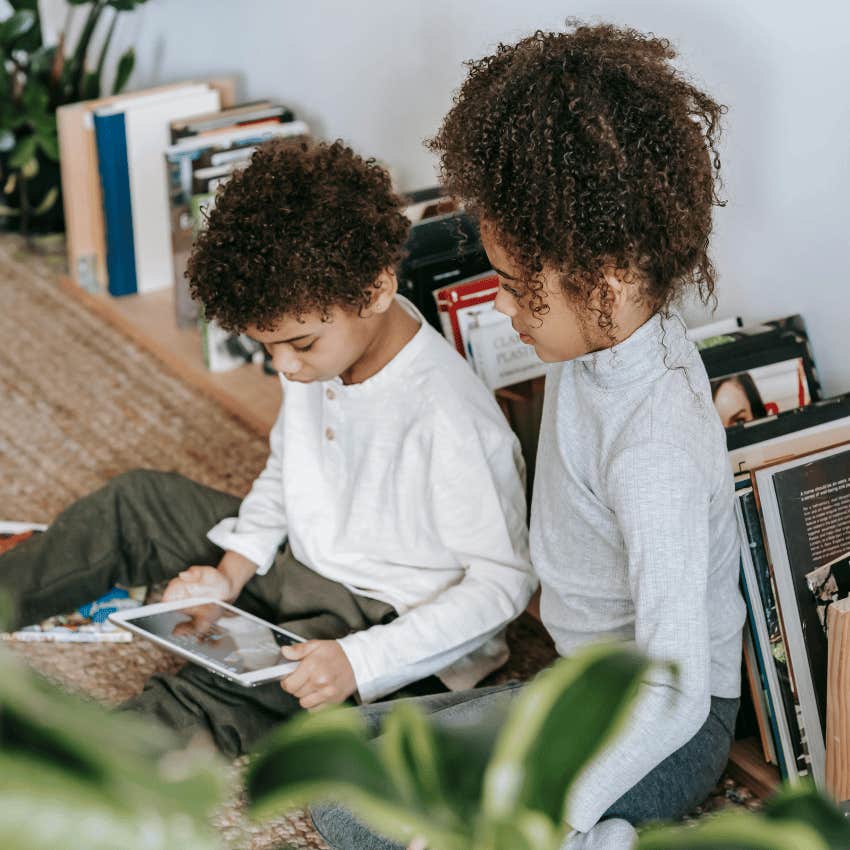My Brother Was My Best Friend Until Our Mother Tore Us Apart — 'He Turned On Me'
I naïvely thought that growing up in the same toxic environment would make my brother and me friends for life.
 fizkes | Shutterstock
fizkes | Shutterstock I grew up in a chaotic home led by two emotionally immature parents. My little brother, Gaby, who's 14 months apart from me, was the only one with the same plight. With Gaby, I shared my fears, sadness, and confusion about our parents’ anger, unpredictable moods, and, mainly, their lack of love. He shared the same with me.
I was there for Gaby when our father unleashed his anger unpredictably. Minor incidents, such as the TV being on, could trigger our father’s unrelenting rage. His insults were particularly brutal: “You will never have any friends,” he’d say. “You have a way of talking that annoys people.”
When our father screamed “Shut up!” at me in front of my friend for talking, Gaby was by my side, defending me and validating my pain. It was comforting to have an ally in a chaotic, abusive home. In the hierarchy of the limited love our father had, Gaby stood at the bottom. He was our father’s favorite punching bag. I wasn’t too far behind.
Our mother was different—neurotic, inattentive, and emotionally unavailable. She had a slightly better relationship with me than Gaby because I listened to her about the misery that was her life. In childhood, our mother treated Gaby as though he were invisible. Gaby wasn’t overly masculine. Instead, he was sensitive and artistic.
Displaying unlimited patience, my brother spent daycare days drawing pictures at the request of his peers. Our mother didn’t acknowledge Gaby’s artistic talents or his love of animals. She encouraged him to be athletic like a “typical” guy would.
During one of our parents’ explosive arguments, our father turned to Gaby and screamed, “Why do you love your mother? She thinks you’re gay!” Gaby blinked and remained stoic. I ran to comfort him. “Are you OK?” I asked, worried. Both our parents continued fighting with each other, oblivious and too self-absorbed.
But during our teenage years, my brother and I drifted apart while living in a warzone.
Panic would erupt when our father came home because we had no idea what mood he would be in. Would he scream uncontrollably? Our mother would not protect us; she never had. She ignored the abuse and lived her life too exhausted and victimized to care.
Gaby and I occasionally spoke about our extended family. They knew our parents were in the process of divorcing, but no one knew how torturous it was to live it. We didn’t discuss it with others; we had learned early on that our feelings weren’t safe to share.
Ironically, Gaby used to say my first cousins were so sheltered. He complained that our cousins were surrounded by love. Our cousins could do no wrong in their parents’ eyes. We thought they were spoiled, but the reality was they received unconditional love from their parents, as every child should.
I naïvely thought that growing up in the same environment would make Gaby and me friends for life, but no.
At the heart of Gaby and I’s disconnect stood our mother. My relationship with our mother deteriorated when I moved out with my then-fiancé. Out of her home, I was no longer at my mother's disposal. To her dismay, I had less time for her rants. She wanted my engagement to end and went to great lengths to make this happen, including by wishing us a horrible wedding.
Our mother, having lost me as her sounding board, began to confide in Gaby. Suddenly, Gaby was no longer invisible to her. As my relationship with our mother disintegrated, so did my relationship with my brother. Gaby became our mother’s devoted mouthpiece, tasked with breaking up my engagement and returning me to my toxic family of origin, where I could be controlled and used.
“Emerald, you moved out with a fiancé who has no idea what is best for you,” Gaby said, relaying our mother’s hurt.
Why couldn’t I be a caring daughter? Gaby would plead.
“This is wild!” I exclaimed.
“Oh yeah. I am wild. There you go, judging me again,” Gaby said. “I have a great relationship with Mom, and you don’t. You’re the problem. You are evil to her.”
Our mother creepily used my brother as a means to an end. She demanded that I return home and cancel my engagement, emphasizing that Gaby felt the same.
He was her flying monkey, her devoted and loyal follower. He was ready to fight for her, to show her how deep his devotion would go, only so our mother could share any shred of love she had. Gaby proudly confronted me in front of her, calling me a bad daughter, as our mother grinned from ear to ear.
 Marta Wave | Pexels
Marta Wave | Pexels
My mother succeeded in destroying the relationship between my brother and me, which she considered a victory.
Confronting Gaby was dangerous. As our parents had done, he minimized my words, ignored me, and blamed me. “Mom and I think you’re sick, Emerald. Do not tell your fiancé what we tell you. Look at everything mom has been through. She had such a hard life. Don’t forget who clothed you and took care of you when you were younger. You owe her.”
Instead of him, I confronted our mother. Our mother said innocently, “I cannot control what he says and thinks.” She smiled happily. “I am not getting involved. Cut ties with him.” (According to a 2022 study, the most common reason cited for estrangement was a ripple effect from being estranged from a parent. The other most common reason given was parental favoritism, both in childhood and adulthood.)
My brother grew up deeply unloved by our father and primarily ignored and unloved by our mother. As an adult, my brother latched onto our mother, hoping for scraps of love.
I once said hello to him, and he answered, “I have decided to cut ties with you because of how much you make Mom suffer. You are selfish to your core, just like Dad is. Frankly, you disgust me.”
Our mother's cruel antics towards me only increased when I had my firstborn child. Our mother did not visit my daughter for months when she was born. She went months without asking about her. Our mother once stormed into my home without warning, screaming at me for having a car accident and being unable to attend her uncle's funeral.
When I confronted my mother about her toxic behavior, she ignored me. Inevitably, Gaby would respond for her. "She did everything for you, and have you seen yourself? You are the toxic one. She has no choice." I was told to brush her bad behavior under the rug, and when I questioned her, Gaby shamed me.
I broke free from my family of origin, but Gaby remained stuck in our mother’s orbit of victimhood and manipulation. Gaby shamed me for the boundaries I set. He cut ties with me for months and told me he would resume contact only if I did what our mother wanted.
The loss of a sibling relationship due to a parent’s triangulation causes unbelievable grief.
It requires the mourning of what was meant to be a lifelong bond. My heart breaks for my brother, but also for myself, as our family has been torn apart. Researchers have identified triangulation as a source of development risk; children who become involved in their parents’ conflicts experience increased internalizing and externalizing problems, and emotional reactivity to inter-parental conflict.
We are no longer in touch, but I often think of my little brother, who had my back, and I continue to hold onto some hope. Beneath my hurt, I understand Gaby’s desperate attempt to gain our mother’s love that should have rightfully been his.
Emerald Myara (she/her) is a writer who covers topics such as narcissistic abuse, trauma, mental health, relationships, and healing.

